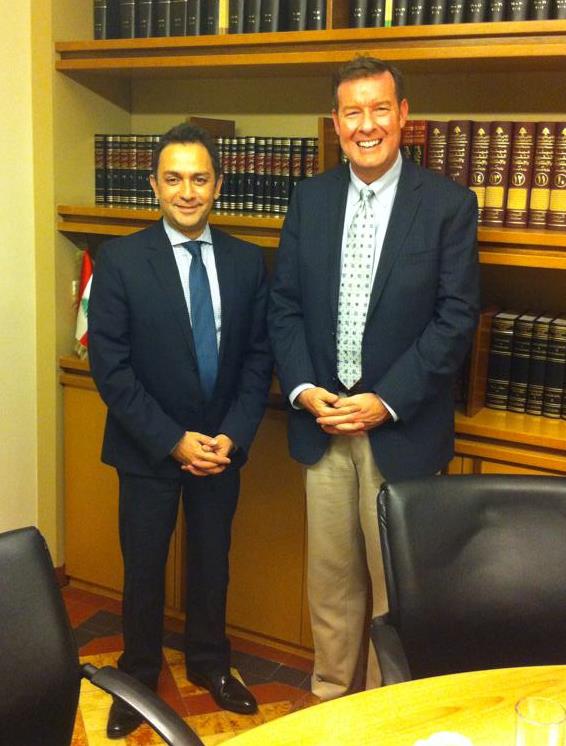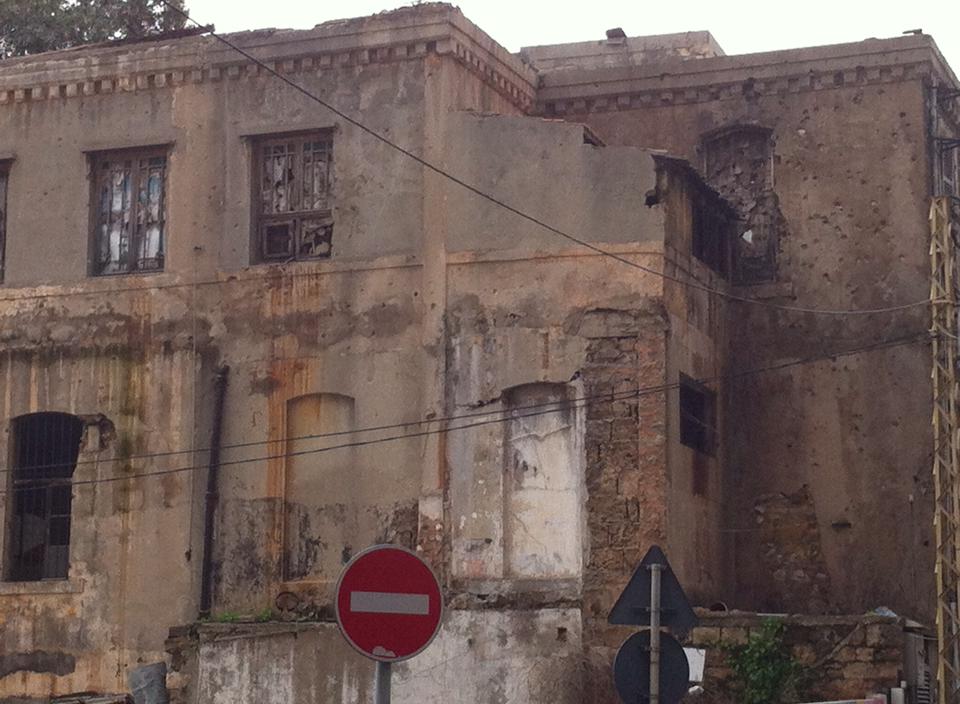The Colonnade: The Lessons of Lebanon

Beirut, Lebanon, 12 December 2014—Driving in Beirut is a bit like Boston. There are many different kinds of cars, but, lanes are optional. Turn signals are like giving information to the enemy. Red lights are merely suggestions.
Somehow, it works. People drive firmly if faithfully. They trust each other enough, driven nevertheless by their own self-interest.
So too with religion and politics, which are almost the same thing here. (One friend said succinctly: “everything is married to everything in Lebanon.”) Saint John Paul II once said that Lebanon is not merely a country, it is a message to the world. While their model may not be for everyone, their example is.
It was not always so. I grew up watching Beirut on the television. It was synonymous with complexity and craziness and civil war. And as a former Marine, we all knew 23 October 1983, when 220 Marines, 18 Sailors, and 3 Soldiers died in a suicide bombing of their barracks in Beirut.
Indeed, that attack was the first terrorist salvo against the United States in a war that lasts to this day. As Americans continue to struggle with how best to engage the Middle East—particularly amidst the current ISIS crisis in Iraq and Syria—Lebanon offers some hope.
Lebanon is roughly 54% Muslim (with Sunni and Shia at 27% each); 35% Christian (21% Maronite Catholic, 13% Greek Orthodox/Greek Catholic, with 1% Protestant); 5% Druze; and a smattering of others.
In other words, it is a nation of minorities. They must live with their deepest differences. Not surprisingly, it is mandated. By law, for example, the president is a Maronite Catholic; the Prime Minister is a Sunni; and the Speaker of the House is a Shia.
It is a far-from-perfect system. There has been no president since May, and the parliament has struggled to enact laws. Meanwhile, the Shia, through Hezbollah, are accused of running a country within a country, possessing their own military (which fought a war with Israel in 2006).
Fragile though it may be, this system moves forward. Because everyone remembers the consequences of not being able to live with their deepest differences: the 1975-1990 civil war, of which the Marine Barracks bombing was just one small part. No one wants to return to those days of horror and massacres.
It has now been a generation since that war ended, about the amount of time it takes for change to take root. That possibility, however, remains quite tenuous as Lebanon—a country of approximately 4.5 million people—is also a country of approximately 2.5 million refugees. There are 1.3 million registered Syrian refugees; somewhere between 250,000 and 700,000 unregistered Syrian refugees; 500,000 Palestinian refugees; and 60,000 Iraqi refugees.
Imagine if 150 million people moved into the United States from Canada and Mexico—which you can’t—and then you’ll begin to think about the crises that Lebanon is facing.
By any account, the system should have broken. In particular, some felt that ISIS would quickly penetrate, destabilize, and catalyze the end of Lebanon. It hasn’t happened, and it is unlikely to happen.
Unlike Iraq and Syria—where there is a lack of governance and an abundance of grievance (especially among the Sunni)—Lebanon has a sense of identity, and, of governance of that identity. So much so that throughout the Bekaa Valley (which had been occupied by the Syrian Army until 2005), militias have formed, across sectarian lines to look out for and report ISIS fighters to the Lebanese Army.
Before my last meeting today, I stopped to take a picture of a bullet-pocked building along a narrow but well-to-do street in Beirut. There the building stood, surrounded by prosperity, a silent sentinel against the return of the past. (Please see below.)

I then met with Ziyad Baroud, the former Minister of the Interior, 2008-2011 (pictured at top of column). I introduced my organization, as well as The Cradle Fund’s effort to come alongside the suffering Church to serve all those suffering in the region (through its strategy to rescue, restore, and return Christians and other ethno-religious folks to a home where they can practice their faith freely).
He appreciated the long-term view of the strategy, noting that the conflicts in Iraq and Syria will one day end. One day they will have to re-integrate, re-conceptualize, and re-structure. Lebanon could be a useful reference point for this discussion: “we know better than most the cost of civil war, and what it takes to come back.”
I asked him what the “West” and America might do to help the situation. “Let me tell you first what not to do: please don’t encourage the emigration of Christians. Once the Sunni and Shia are done fighting, Christians can be a catalyst to gather and consider again what it means to be a citizen for everyone.”
And what should the U.S. and others do? “Please consider the following four things:
-
Help people survive the winter…rescue them;
- Give hope; hope is an excellent weapon…give them the hope of being restored and returning;
- Come alongside the countries hosting the refugees…help those doing the helping; and,
- Pressure those [in governments] who can decide whether to be engaged, to engage and defend the dignity of diversity.”
Ziyad said, “Please remember, the ‘idea of Lebanon’ is that it is a nation of minorities that guarantees the rights of all…” and that there are dire consequences when it does aspire to this goal.
I mentioned that the abandoned building up the street, scarred by years of civil war, had reminded me of this very point. “When I was the Minister of Interior, I fought to keep that building as it is, to remind us.”
As you drive around a Beirut that is bustling, building, and busting at the seams, if you choose to look, you can find many of these war scarred buildings. Perhaps it is these vigilant visuals of the past that keep Beirut’s drivers honest as they rush toward the future, mostly together.
The lessons of Lebanon are good for all of us. We are all minorities somewhere. And so we humans, mostly together, must be humble and honest about our worst, even as we pray for and work practically toward our best.